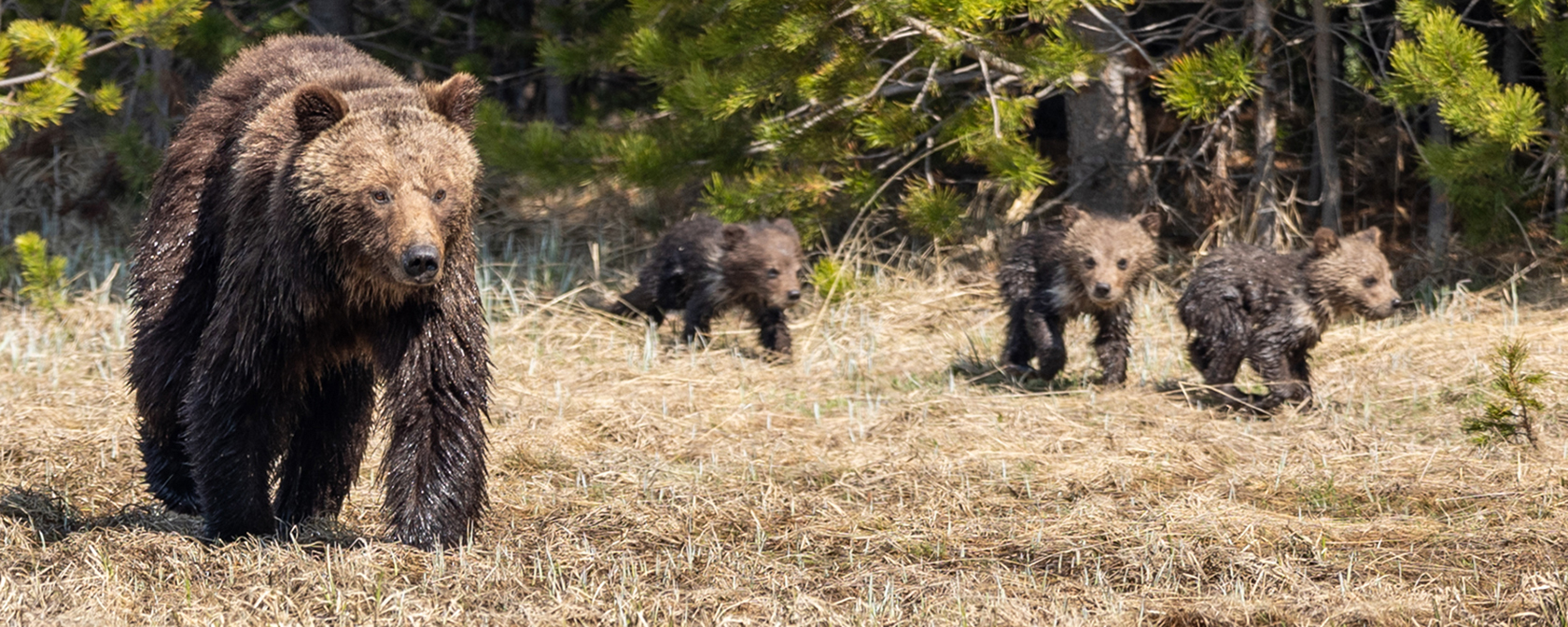We watched with dismay this week as the House Natural Resources Committee passed the Grizzly Bear State Management Act (H.R. 281), sponsored by Representative Harriet Hageman (R-Wyoming), by a party-line vote of 20-19.
Hageman’s proposal amounts to a brazen attempt to delist grizzly bears from the Endangered Species Action by congressional action, overriding the authority of the U.S. Fish and Wildlife Service and relevant rulings by the U.S. Court of Appeals for the Ninth Circuit. It scuttles careful scientific and regulatory review of the grizzly bear’s status in the Greater Yellowstone Ecosystem, swapping the political judgment of hardened enemies of the grizzly for careful science while undermining decades of work and millions of dollars directed towards restoration.
Moreover, by barring judicial review, Hageman’s measure offends the traditional role of our courts in ensuring that listing decisions appropriately consider the available science in compliance with the law.
Please act to support grizzly bears now, by contacting your congressional representatives to communicate your strong opposition to H.R. 281. You should encourage your representative to do the same when it comes to the full House for a vote.
Grizzly bears owe their very survival to the ESA, which Hageman’s bill seeks to circumvent. The steep decline in their population numbers was one of the key factors prompting enactment of the ESA in 1973; soon after its passage, the grizzly bear was listed as threatened in the contiguous United States.
Today, grizzly bear populations remain in trouble despite the incremental progress toward recovery they have made in some areas. They number about 2,000 in the lower 48 States, but they are essentially marooned in small populations unconnected from one another. Concerns remain about the geographic and genetic isolation of these populations, and the likely effects of delisting. Geneticists worry that without connectivity— something that is all but guaranteed if federal protections are stripped— that their populations are too small to survive because of inbreeding.
Specifically, longtime observers have serious reservations about returning grizzly management to states like Wyoming. In the end, it becomes a question of whether Wyoming and other states can be trusted to manage a delisted grizzly bear population with even minimal decency or regard for the species and its vital role in an ecosystem. Most of us think they can’t.
Species recovery is a scientific question, not something we can leave to subjective human judgment. That’s relevant here, because the grizzly bear, like a handful of other species, has real enemies in the western states, and we can’t afford to let them run roughshod over the single most important defense these animals have; the fair and judicious application of the Endangered Species Act.
In January 2025, the U.S. Fish and Wildlife Service, responding to petitions by Montana and Wyoming, declined to delist the GYE grizzly bear population. Six months later, there is no reason for the agency to change its mind. Rep. Hageman’s bill is without merit and the Congress should reject it.




